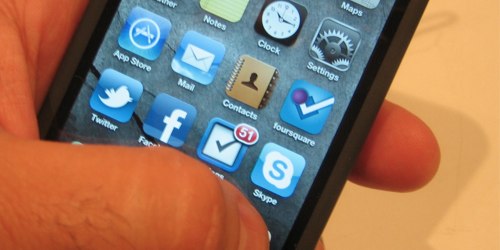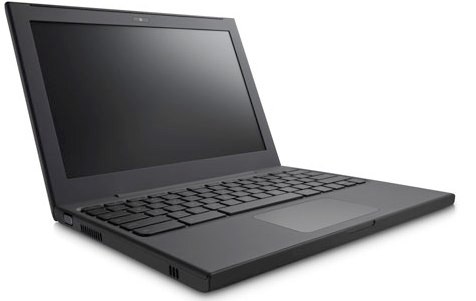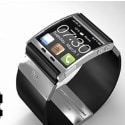I just had a nice phone call with my wife. This is not particularly unusual except that I am in New Zealand, she is in the USA, I was calling for free, I was talking on my cell phone but not making an actual phone call. Some recent changes in technology are useful for travelers to know.
The Death of Traveler’s Checks
I don’t want to say that the days where you needed to bring traveler’s checks are over but they are over for me. I have not purchased a traveler’s check in over a decade and have traveled on 4 continents with few issues. Bring along you ATM card to get cash out in the local currency without paying for exchanging cash. You will need to have a PIN of 4 numbers or less to work internationally. Find out from your bank if they will add any fees on the transaction.
Similarly, I bring along a MasterCard or Visa credit card to use when credit is an option. Some credit cards are better than other’s for traveling because most banks will charge a fee to convert currency (Best Credit Cards for Travelers). There is one issue that U.S. Credit card holders may run into. Much of the world is moving away from the magnetic strip on the back of a credit card and going to a system where there is a computer chip on the card. This is known as the chip and PIN system. If there is a person to hand your card to, you will probably not run into any issues but some automated kiosks like the RAR trains in France will not take the U.S. Style credit cards. These issues are likely to get worse before the U.S. banks make the change to the new system.
Power
When you want to plug in your hair dryer or your laptop into the power plug in a foreign country you will run into two different obstacles:
Plugs – Different regions of the world, for no particularly good reason use different shaped plugs. A U.S. Power cord can’t be plugged in outside of North American without a plug adapter. You can find these cheaply on eBay or in a local luggage store.
Current – Now that you can plug in your device you have one more question you need to answer that is very important. The U.S. uses 110 Volt power for most electronics. Much of the rest of the world outside of North America uses something like 220 Volt power. Most new expensive portable electronics like a laptop say on their power brick that they support something like 110-240 Volts. That device will work fine in a foreign country with just a plug adapter when the voltage is within that range. Hair dryers, curling irons and other electronic devices that don’t specifically say that they will work with a 220 Volt power system have a tendency to smoke fry and burst into flame when you plug them in. For such devices you will need a “voltage adapter” or “voltage transformer” which will accept 220 Volts but will step that down to the 110 Volts you need.

One issue with cell phones is that there are two main technologies used by most modern cell phones. Traditionally AT&T and T-mobile in the U.S. used a digital system called GSM which is an international standard. Verizon and Sprint used a different system called CDMA. CDMA had some technological advantages when you use it in the U.S. but will cause travelers problems. A CDMA phone like a Verizon phone will not work when you take it to another country that uses a GSM system. This has gotten better as providers moved to 4G LTE networks. But you still might have problems in some areas. Check the coverage map for your provider.
The cell phone you have in your pocket might (or might not) work in a different country. A cell phone uses a radio to connect to a cell tower and allow you to call someone. For historic reasons different countries around the world use different radio frequencies so the radio that works in the U.S. won’t work in Europe or Asia. More recent smart phones get around this issue by including more than one radio in the phone.
If your phone will not work in your destination and you want to stay connected you can rent a cell phone but it is often cheaper to by a cheap “unlocked” cell phone in your destination with pre-paid minutes. An unlocked phone will allow it to work with different cell phone companies. Go to a cell phone store and see what deals they have. Be aware that if you buy a cell phone in the UK and then travel to France that every call you make in France will be treated as a long distance call from the UK so you will burn through your minutes more quickly. If you have an unlocked phone you can buy a different “SIM card” for your phone when you get to France which will give you a phone number for France and make your phone in essence into a French phone.
Right now, T-Mobile has the best plans for travelers as they include free data roaming in a great number of countries.
Skype
If you want to talk to your loved ones half a world away or even see them then while you talk then the popular program Skype is something that you should know about. From your computer or increasingly from the computer in an internet cafe you can connect to another person who is on Skype with their computer. Skype is a free program and a free service when you connect computer to computer. You can also make calls to regular phones from Skype which is what I was doing from New Zealand. I was using skype on my iPhone and calling my wife’s normal cell phone. Using Skype to call a phone takes advantage of Skype’s “SkypeOut” service. There is a cost for this service but it is often around $.04 a minute which is an unbeatable rate. If you use Skype often, you can buy additional services like the ability to call any U.S. phone number for free. This service costs $6 a month and I have that service which is why my phone call was free.
Smart Phones
Many people no longer have just a cell phone in their pocket but a phone that is also basically a small computer capable of running different programs or “apps” as they are called. These phones are called “smart phones” and the best examples are Apple’s iPhone or any phone running the Android operating system from Google. These phones can bring up maps, make calls, browse the web, book reservations, and check for a highly rated Thai restaurant near you. Smart phones can make phone calls using cellular networks like AT&T, TMobile, Verizon and Sprint. They can also connect directly to the internet using wi-fi or wireless internet where available. In addition they can connect to the internet through data services from the cellular companies using a “data plan”.
It is important to understand that connecting to a wi-fi hub is free although connecting from that hub to the internet might have a fee. If you connect to a wi-fi router and then go to any page on the internet (I generally try and open up google.com) then if there is a fee you will a see page that tells you how much the cost will be and let’s you pay for the service if you desire. So the bottom line is that whether you are traveling at home or abroad there should not be any unexpected costs when you connect to the internet using wi-fi.
When you connect to the internet using the cellular system and you are outside the area where your carrier works but are instead connected to another carrier you may still be able to use data services but you are now “data roaming” which can cost a tremendous amount of money. I recommend that you turn off data roaming in your smart phone and never use it. If you must use it, at least be sure you understand what charges you are incurring.
If you have a smart phone look for travel apps before your travel to a destination. It is common to find travel information applications (e.g. local subway maps) that will work on your phone and some of these will be free. You can also increasingly get a variety of guidebooks that will available as an app that will work on your phone.
Conclusion
You don’t have to adopt any new technology to travel… but it might make your travel easier if you do.
- Buy Travel Insurance
- Book Your Accommodation HERE
- Get a Car Rental
- Search for Great Tours HERE
+Chris Christensen | @chris2x | facebook
7 Responses to “5 Important Technologies for Today’s Travelers”
Leave a Reply
Tags: article, credit cards, iphone, travel gear


 Google Cr-48 – First Look at the Google Chrome Box
Google Cr-48 – First Look at the Google Chrome Box Christmas Gifts for Travelers
Christmas Gifts for Travelers Best Travel Credit Card
Best Travel Credit Card Must-Have Travel Gadgets for Different Kinds of Travelers
Must-Have Travel Gadgets for Different Kinds of Travelers

Timothy S. Carlson
Says:July 28th, 2010 at 6:56 am
Some points about your points:
Travelers Checks – yes, they are dead. An ATM and a credit card are necessary. But some banks (I have had personal experience with BofA and Wachovia) DO charge conversion fees on ATM withdrawals.
Power/Plugs – It is incorrect that North America plugs will plug no where else. The Philippines has US type plugs, many hotels provide US type plugs. The REAL problem is that the voltage is 220V, not 110V, so you more than likely fry whatever you plug in from the US. Adapters are important, but assuming that if your plug fits, you are okay, will bite you in the butt. LEARN THE VOLTAGE USED IN THE COUNTRY YOU ARE VISITING, and assume ALL plugs are 220V. If you use a step-down transformer on 110V, your device may not work, but it won’t fry.
Power/Current – it’s not current that will kill your devices, it’s the voltage. 110V devices do not like 220V. I know this from personal experience. You should rename this section Power/Voltage instead.
Cell Phones – if your cell phone uses a sim card, and the country you are in uses sim cards, then it is cheaper to buy a local sim card and make calls that way (international calls with a IDD (international direct dial) card) than to roam with your US service. When I was in China, roaming charges KILLED me until I got smart and bought a local sim card.
Skype – excellent, cheap, and a life saver at times.
Smart Phones – having a smart phone with WiFi capability can be really useful when traveling. A lot of restaurants, cafes, even shopping malls provide free WiFi.
I would add a section on Batteries. If you have any devices that require batteries, either bring lots of extras or bring some rechargables with a charger that can work on 220V. The batteries found in other countries (I have found this to be true particularily in SE Asia) are junk. For a digital camera, if they work at all, they may take one or two pictures and then die.
That’s it. Good article, I wish I had the resources that are available today when I was traveling to Singapore for Momenta.
Tim
Intoxicated Abroad
Says:July 28th, 2010 at 10:34 am
Definitely going to bring my Blackberry with me on my next trip.
chris2x
Says:July 28th, 2010 at 11:12 am
Power plugs – True, also China has a 2 prong plug even though they have incompatible voltages. I am writing a long post that gets into more details about who uses which plugs and which voltages.
Yes, I goofed and meant to say voltage transformer. Never blog while jet lagged. I have corrected it. You were not the only one who caught that. 🙂
You know, my perception was that “a lot of” places provide free wi-fi but it really does depend on where you go. New Zealand had almost NO free wi-fi that I could find in two weeks in country and bandwidth limits on the wi-fi you paid for. 🙁
Good point on the batteries. One of the last devices I fried by not checking voltages was my battery recharger.
Becky
Says:July 28th, 2010 at 1:21 pm
Good tips Chris! I did a lot of research before leaving for my 17 day Australia/NZ trip and decided to try and get by on WiFi alone with my iPhone. It didn’t work very well, because most of the hotels wanted to charge $20 or so per day for WiFi access. Even hotels that had free WiFi tended to have a data limit so that when my phone connected and started automatically downloading all the emails I’d missed, it would quickly use up that limit and WiFi would be useless to me. 🙂
What I didn’t know at the time, but had met someone who was using it, was that for an extra monthly rate, I could sign up for an “international data plan” with AT&T. There was a daily data limit, I think, but they could use the phone for texts, emails, skype or other data. Because I have an iPhone and it wasn’t unlocked, I wasn’t able to get the voice part to work while overseas, but in retrospect, it would have been great to have the data plan to communicate via texting back home and keep up on emails.
I didn’t know about the Skype plans, so that is something I would look into for any future overseas trips to be able to call internationally. I also changed currency before leaving, but didn’t realize I might be able to just use an ATM card instead with possibly lower fees. Thanks!
Becky
Legal Nomads
Says:July 29th, 2010 at 12:54 pm
Agree on all points.
I left my blackberry at home for the first 6 months of my travels, then used it for the next 2 years of gallivanting. It has been a terrific resource to have, but I have a data only plan installed, and use my $5 cell from the Philippines to swap out local sim cards.
The blackberry has given me instant currency conversion (helpful as pictorial proof when someone is trying to scam you on exchange rates), pictures to share with the world on Twitter/Facebook (and sometimes news orgs if you find yourself in a place that’s going a bit pear-shaped) and google maps. I will definitely keep using it in my travels.
-Jodi
Deborah Gaffney
Says:August 3rd, 2010 at 7:13 pm
I followed your advice on purchasing a phone in the UK and getting sim cards in Netherlands and France. The phone was cheap less that $20. and the sim cards worked well and were between $10 and $15
Thanks ,
Debbie
chris2x
Says:August 3rd, 2010 at 11:03 pm
Excellent!